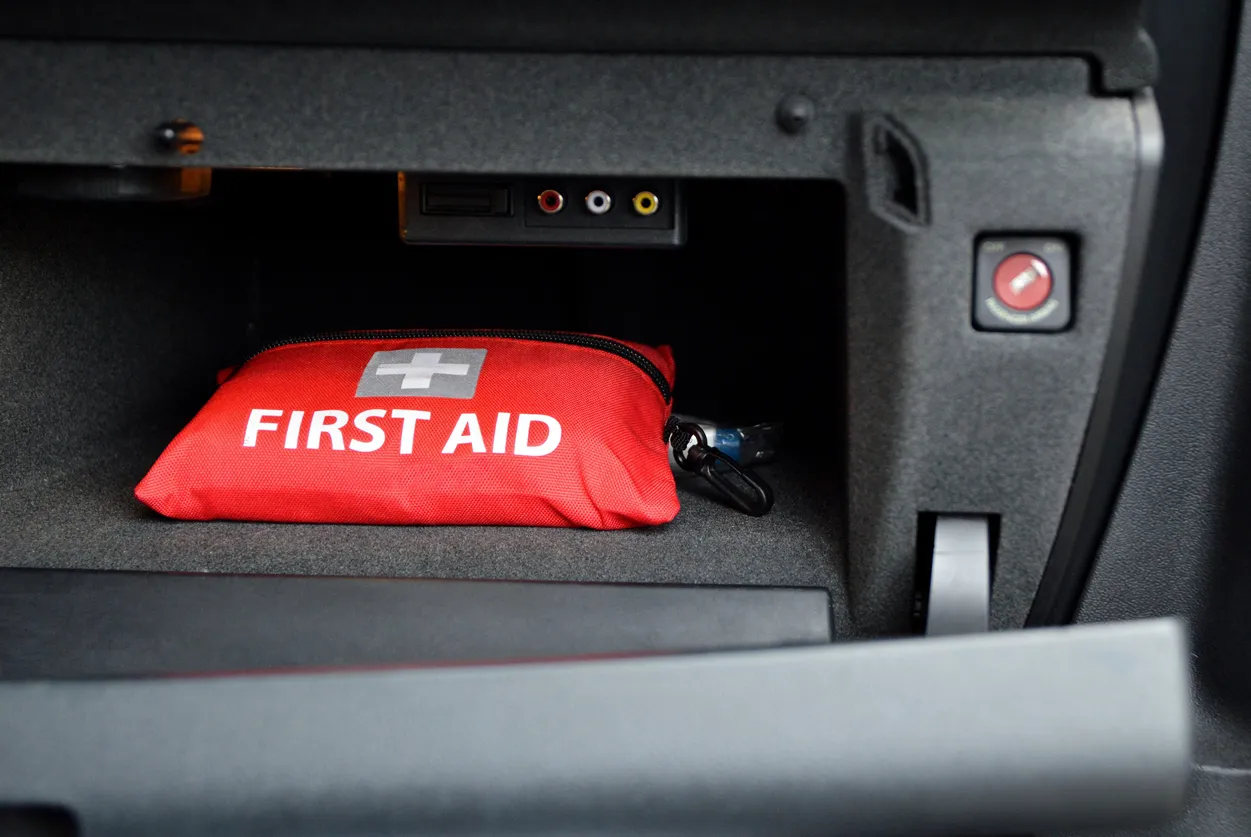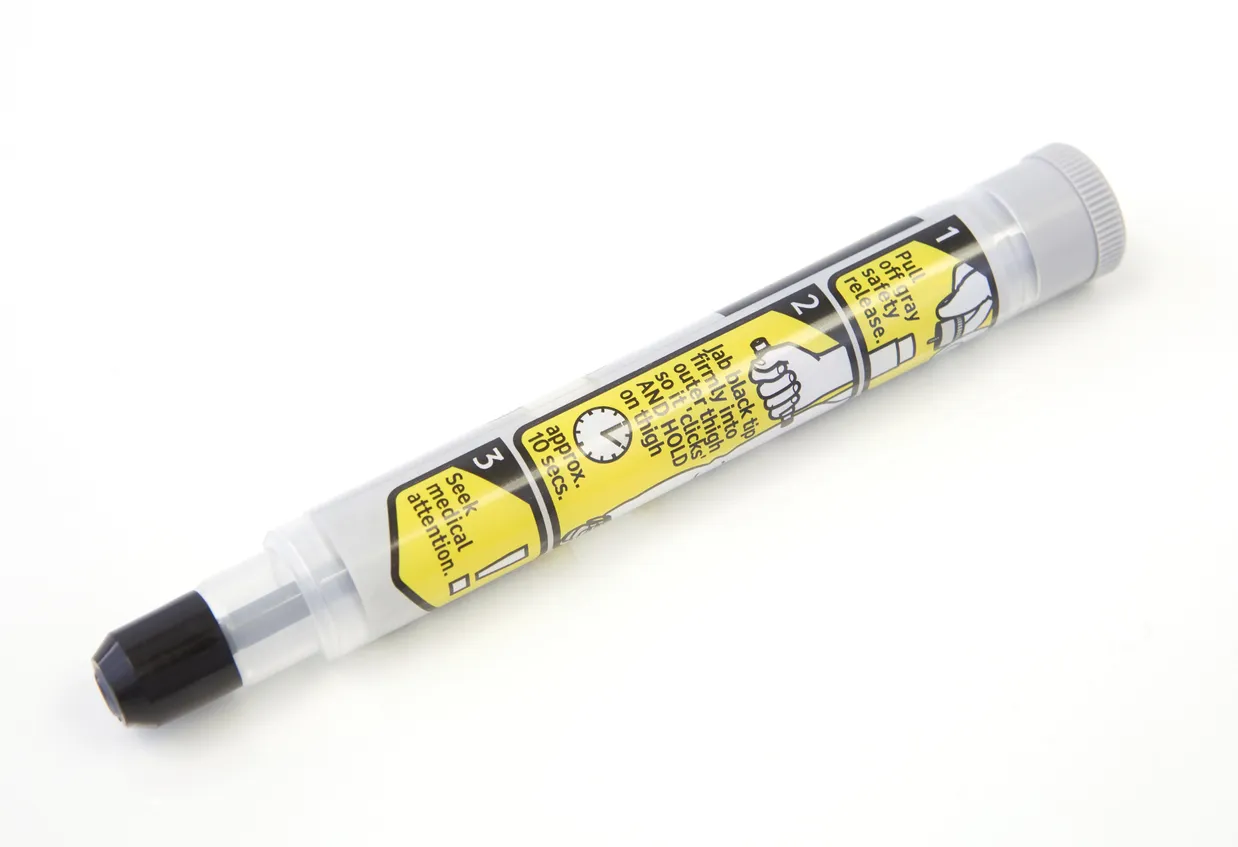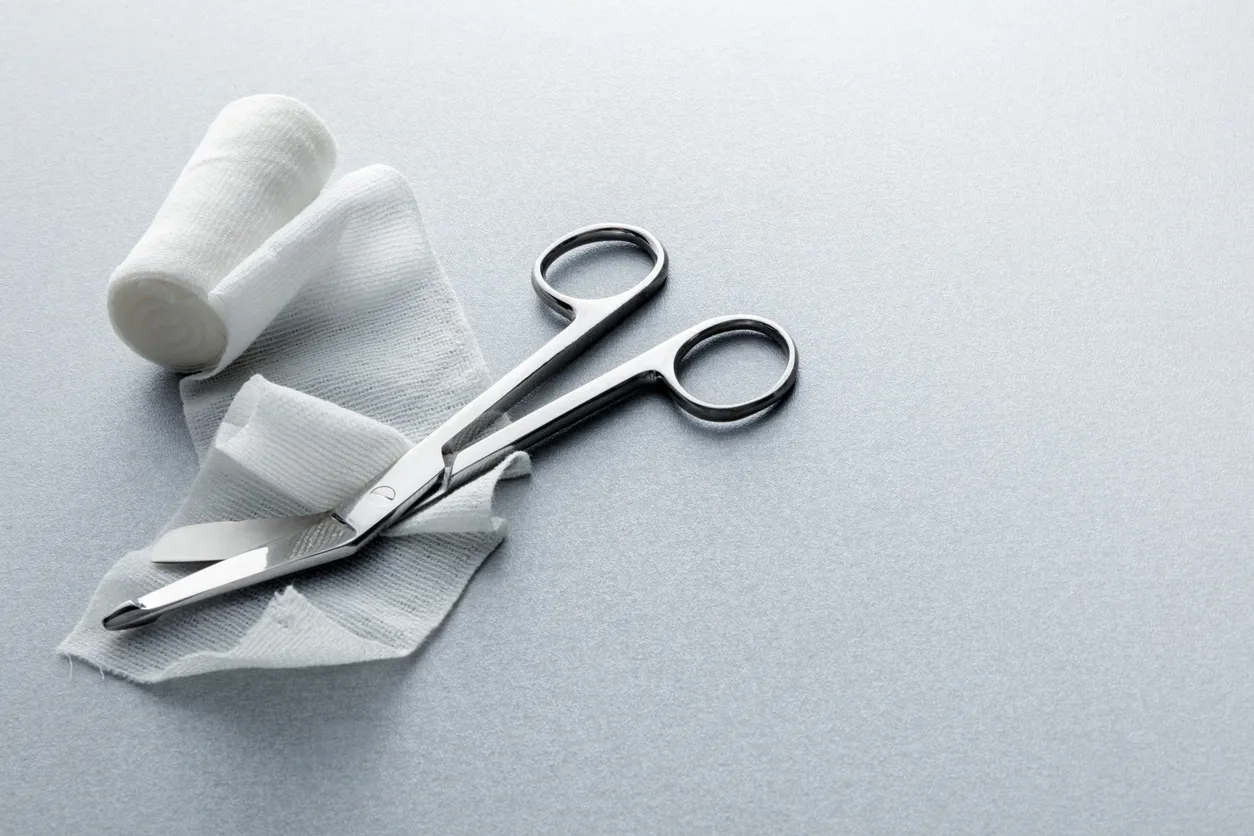What Should Be In a Car First Aid Kit?

Driving a vehicle is dangerous, and many people get injured in car accidents annually. Even if you don't get into a serious accident, there are likely going to be times when you or one of your passengers gets injured while traveling in your vehicle. When that happens, it's important to have access to a car's first aid kit. The car medical kit will have the supplies you need to fix up most injuries and keep you and your passengers healthy.
10 Things To Put in a First Aid Kit
A good first aid kit is an essential response tool for most medical issues. The car medical kit should include the most common items you'll need to address minor scrapes, cuts, slivers, and more, to more life-threatening issues. Below are the ten types of items you should keep in any first aid kit, including your car's first aid kit.
- Various types of bandages and gauze
- Adhesive tape and safety pins
- Antiseptic or antibiotic wipes and creams
- Acetaminophen and other pain relievers
- A needle and curved medical scissors
- Cotton balls or cotton swabs
- Tweezers
- Protective medical-grade gloves
- CPR Mask
- Hot and cold packs
If you include all the above items in your car's first aid kit, you won't have to ask what goes in a first aid kit any longer. You have your bases covered, and you can build on top of these essential items to make a more customized car medical kit for your specific needs.
What Other Essentials To Put in a Car's First Aid Kit?
While any first aid kit should have the items above included, there are some more car-specific items you should think of adding as well. Some of these items are informational and will help you make the right decisions while away from home, but others are extras that you may not need in a home kit.
An Informational Contact Card
Fill out a simple index card with numbers for your insurance company, local police departments, your family doctor, auto dealerships, and the auto manufacturer for your vehicle. Having all this information available will help you contact the people you need to talk with after a car accident so you don't have to go looking.
First Aid Manual
Whether you're dealing with life-threatening bleeding or someone in your family has a splinter you are struggling to remove, having a first-aid manual to call on is helpful. Add a high-quality manual to your car's first aid kit, and you'll have a reference guide available even if your phone is dead or you don't have service. It's nice to have a guide you can call on no matter what, and a manual is one of the things in a car's first aid kit that many people don't think about.
Allergy Medications
 If anyone in your home has serious allergies that can lead to breathing issues, you should include an EpiPen in your car's medical kit as an important insurance policy. You should also include various antihistamine medications, including creams, eyedrops, nasal sprays, and pills. While traveling, you may suffer from more allergies than you do while at home, and it's nice to have the tools to deal with those issues as they arise.
If anyone in your home has serious allergies that can lead to breathing issues, you should include an EpiPen in your car's medical kit as an important insurance policy. You should also include various antihistamine medications, including creams, eyedrops, nasal sprays, and pills. While traveling, you may suffer from more allergies than you do while at home, and it's nice to have the tools to deal with those issues as they arise.
Sting and Bite Treatments
Stings and insect bites are more common while traveling and doing things outdoors. Toss in simple solutions for stings and bites, and you'll be prepared for a bee sting, mosquito bites, or other issues you encounter during your travels.
Sunburn Treatments and Sunscreen
Any first aid kit for a car should include sunscreen as well as sunburn treatments to help you deal with too much time out in the sun if you've ever suffered from a sunburn before, you know how important these items are.
Tooth Preservation Kit
Finally, you should consider adding a tooth preservation kit to your car first aid kit. This special saline-filled container is designed to house your tooth if it gets knocked out. The kit will keep your tooth from dying for longer, so your dentist can put it back in your mouth effectively.
Bleeding Control Items
 When things get serious, you want your vehicle first aid kit to have quick clot bandages and dressings as well as a tourniquet to control major bleeding. While you probably won't need these specialized items very often, when you do have an injury that involves serious bleeding, it's vital you have a way to stop it as effectively as possible. That's what these items are designed to do. A tourniquet is a proven way to stop bleeding in one of the limbs fast but must be used with caution. For most serious wounds, a quick clot bandage can help prevent life-threatening bleeding until emergency service providers can arrive.
When things get serious, you want your vehicle first aid kit to have quick clot bandages and dressings as well as a tourniquet to control major bleeding. While you probably won't need these specialized items very often, when you do have an injury that involves serious bleeding, it's vital you have a way to stop it as effectively as possible. That's what these items are designed to do. A tourniquet is a proven way to stop bleeding in one of the limbs fast but must be used with caution. For most serious wounds, a quick clot bandage can help prevent life-threatening bleeding until emergency service providers can arrive.
First aid kits for cars should have all the items above from the essential list as well as the extras. If you include all those different items, you'll be ready for most minor and serious issues, and you and your family will be more comfortable as a result.
Audit Your Car's First Aid Kit Annually
Just as you should always consult a vehicle history report before purchasing a used vehicle, you should always look over your car's medical kit before going on a major trip. Refill the key items you use regularly, check expiration dates, and change out items that must be replaced. Medications and treatments such as an EpiPen only last a few years before they should be replaced. Make these important replacements to keep your car's first aid kit functional over time, and you'll enjoy superior protection as a result.
Many people don't know what's in a vehicle's first aid kit and what sort of tools they should have to stay safe while out on the road. By taking the time to go over your first aid kit items you can determine what you need to add and how prepared you really are for your next incident. Start by determining what should be in a car's first aid kit, then move on to looking at what is in your car's medical kit to help you make the necessary changes and get the medical supplies you truly need to protect yourself and your family.
FREE Vehicle Search
- Accidents
- Problem Checks
- Title Records
- Recalls
- Values
- Specs
-
InfoPay, Inc. (dba GoodCar) is an Approved NMVTIS Data Provider
-
-












































